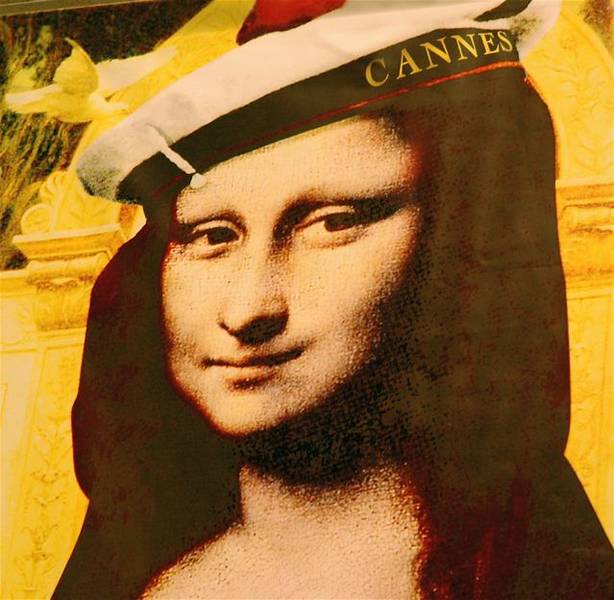CANNES, France – On second thought, maybe it was not such a great idea to hold the world premiere of “The Da Vinci Code” at the Cannes Film Festival. The critical reception here was negative, but what would you expect? As someone who enjoyed the film (good, not great, better than the book) I am possibly typical of many of the people who will pay to see it. But when you open at Cannes, those are not the people in your audience.
You must understand that Cannes always opens with a French film. Always. Well, almost always. It always opens with a movie that has big stars, that’s for sure. Every network in Europe covers the opening night, as celebrities march up the red-carpeted staircase and fashion commentators give a gown-by-gown description of the action. So Cannes got its stars: Tom Hanks, yes, and Sir Ian McKellen, and two of the biggest stars in France, Jean Reno and Audrey Tautou of “Amelie.” It got a film that opens and closes at the Louvre, has a chase scene in Paris, includes a villa in the French countryside, and has a lot of subtitled French. But it did not get a French film, and that caused some resentment.
Then there was the circus atmosphere. Sony Pictures actually chartered a train to bring press here from London, as the stars wandered the aisles giving interviews. The kinds of journalists who take such train rides are, in the language of Cannes, not critics but chroniclers. In other words, celebrity and gossip writers. As for the critics, who saw the film here on Tuesday, they are very serious, never more serious than on opening night, when they suspect they are witnessing the death of the cinema. They have suspected this every year since I believe it was 1946.
There is also the delight of a scandal: Big film comes to Cannes, opening day Tomatometer stands at 20 percent, Drudge runs headline that Da Vinci was greeted with jeers, etc. David Germain of the Associated Press looked on the bright side: “There were fewer departures than many Cannes movies provoke among harsh critics.” And he found a critic who liked it: ”For two hours it was good entertainment. As a Hollywood movie, it’s a very nice picture.” This critic was Igor Soukmanov of Unistar Radio in Belarus.
I suppose it takes a certain perversity to say, hey, it’s not that bad; it’s more or less precisely what you would imagine a movie made from The Da Vinci Code would be like. Having actually read the Dan Brown novel, however, I imagine the movie was harder to appreciate for those who hadn’t slogged through his theological treasure hunt, and I doubt it is the sort of novel favored by opening-night critics at Cannes.
So maybe Sony should have just opened the movie in the usual way and not spent millions setting itself up for crucifixion at Cannes. Speaking of those millions, we never did make it to the opening night party, which began at midnight and was held in a pyramid that was said to be somewhere out at the end of the harbor. When you fly all night to France you do not seek out midnight parties involving 2,000 strangers jammed into a pyramid. Instead of a VIP area, do they use the pharaoh’s burial chamber?
Chaz and I did however attend the official opening dinner in the Palais du Festival after the screening. We sat at a table with a woman who said her name was Monica and that she spoke English, but did not say anything more than that. Also at the table was our good friend Baz Bamigboye of the Daily Mail, a London paper which is like if the New York Post died and went to heaven. Baz on opening night: ”It’s a movie about whether the greatest story ever told is true or not, and it’s not the greatest movie ever screened, is it?”
True enough. We ran into Sir Ian McKellen, who seemed, after years of toiling at greatness in Shakespeare, to be enjoying his current superstar status as a Hollywood villain. This week, “The Da Vinci Code.” Next week, Magneto in “X-Men: The Last Stand.”
“I’m the sort who pays his way into the Universal Studio tour because I love the movies so much,” he said. “Just think, I get paid to be in a movie with Tom Hanks!” This struck me as such an improbably nice statement that it might possibly be true. He was hanging out with Tim Roth and Alfred Molina, two other great actors with jolly Hollywood credits (you will recall Molina as Doc Ock in “Spider-Man 2“).
Ron Howard and his producer, Brian Grazer, passed by on their way to the pyramid. Howard seemed reasonably cheerful, perhaps because he suspects “The Da Vinci Code” will gross a fortune despite its Cannes reception. They left through a nearby door.
“I wonder if that’s how you get to the pyramid?” my wife Chaz said.
I asked a waiter, “Is that the way to the pyramid?”
“The pyramid, monsieur?” he said. “That is the way you get to the kitchen.”
We sat back down at our table with Monica and Baz. There was a little printed menu at every place. I asked Chaz if she wanted to stay for dessert.
“What are they having?” she asked. “I don’t have my reading glasses and I can’t see the menu.”
“Luckily, I do, and I can,” I said.
“But it is in French and you won’t know what it says.”
“I read a lot of French,” I said. “You’re forgetting the summer I spent reading the Tintin comics with the French dictionary.”
“All you learned from that,” she said, “was how to say, Not by foot, I hope!“
“A useful phrase,” I said.
“Can you understand what it says we’re having for desert?” she said.
“Of course I can,” I said. “It says, Surprise.”











